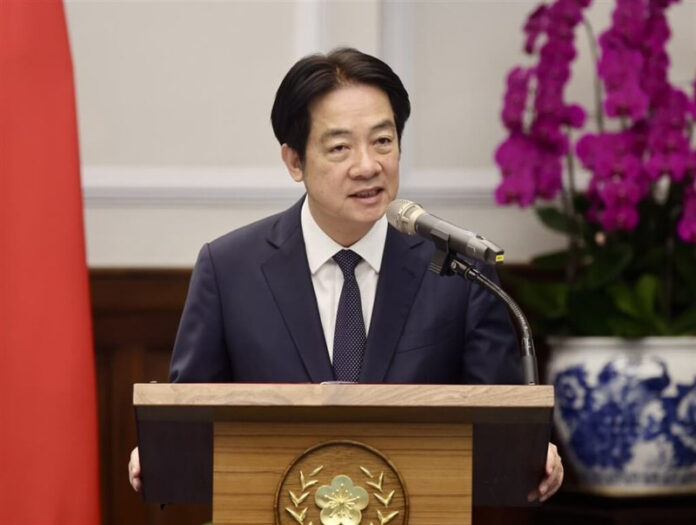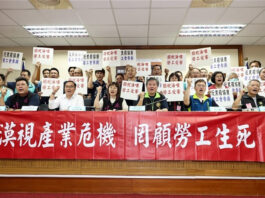In a landmark week for Taiwan’s energy policy, President Lai Ching-te reaffirmed his administration’s commitment to a nuclear-free homeland even as the Legislature passed a controversial amendment allowing nuclear reactors to extend their operational lifespan by 20 years. Despite the change in law, President Lai emphasized that the No. 2 reactor at the Maanshan Nuclear Power Plant in Pingtung County — Taiwan’s last functioning nuclear reactor — would still be shut down as planned on Saturday.
This development signals not only a potential standoff between executive policy and legislative flexibility but also sparks broader questions about energy sustainability, public safety, and geopolitical risks in the context of Taiwan’s unique position in East Asia.
🔍 In-Depth Analysis
🎯 What Happened?
On May 14, 2025, Taiwan’s Legislative Yuan passed an amendment to the Nuclear Reactor Facilities Regulation Act, which now allows nuclear power plant operators to apply for a 20-year extension beyond the existing 40-year operational limit — effectively allowing some reactors to run for up to 60 years.
This amendment was passed with support from the opposition parties — the Kuomintang (KMT) and the Taiwan People’s Party (TPP) — in a 60–51 vote. The ruling Democratic Progressive Party (DPP), which has long championed a nuclear-free Taiwan, strongly opposed the change due to unresolved issues surrounding nuclear waste disposal, safety, and public resistance.
🧑⚖️ What Did President Lai Say?
President Lai, who also chairs the DPP, firmly responded during a party meeting that despite the amendment, the Maanshan No. 2 reactor will still be decommissioned on May 18. He warned against the politicization of nuclear policy and insisted that any attempt to restart or extend a reactor’s life must undergo a substantive, science-based review.
He outlined three non-negotiable conditions for any future policy shift involving nuclear energy:
- Safety — No reactor can operate if its safety cannot be fully guaranteed.
- Waste Disposal — There must be a clear and viable strategy for handling radioactive waste.
- Public Consensus — Major energy decisions must have democratic legitimacy.
🧠 Context: Why Now?
The debate over nuclear power in Taiwan has simmered for decades. Following the 2011 Fukushima disaster in Japan, anti-nuclear sentiment intensified in Taiwan. The DPP has since made phasing out nuclear energy a core policy. The Maanshan plant, commissioned in the 1980s, is the last standing vestige of Taiwan’s once-ambitious nuclear program.
However, in recent years, energy demand has surged, and Taiwan has faced criticism over power shortages, blackouts, and high emissions from coal and LNG-based energy generation. The opposition argues that the amendment gives the country “regulatory flexibility” to ensure energy stability while newer, safer nuclear technologies are explored.
🌏 Implications for Taiwan’s Energy Strategy
President Lai’s insistence on closure without further evaluation suggests a potential executive-legislative deadlock over Taiwan’s energy future. If the Maanshan reactor is shut down, Taiwan will entirely rely on fossil fuels and renewables — a bold move that could impact:
- Energy security during peak demands or geopolitical shocks.
- Carbon emissions, especially amid Taiwan’s pledge to become net-zero by 2050.
- Public trust in government transparency regarding energy risks and climate strategy.
It also underscores the tension between short-term energy pragmatism and long-term ideological commitments to sustainability and safety.
❓ FAQs
Is Taiwan shutting down all its nuclear reactors?
Yes. As of May 18, 2025, Taiwan will officially shut down its last nuclear reactor, fulfilling the DPP’s long-standing policy of establishing a nuclear-free homeland.
Does the new law allow for restarting old reactors?
Not automatically. The new amendment only allows operators to apply for extensions of up to 20 years. Any restart would still require a thorough scientific and safety review, as per existing regulatory standards.
Why did the opposition support the amendment?
The KMT and TPP argue that the amendment provides regulatory flexibility to maintain energy security and keep future energy options open amid rising demand and uncertainty in global energy markets.
What are the risks of extending nuclear reactor operations?
Aging infrastructure, unresolved nuclear waste management, and public skepticism are among the key concerns. Extending a reactor’s lifespan requires a major investment in safety upgrades and risk assessments.
Could advanced nuclear technology play a future role in Taiwan?
President Lai has said the government is open to exploring new-generation nuclear technologies such as small modular reactors (SMRs) — but only if safety, waste, and consensus are achieved.



